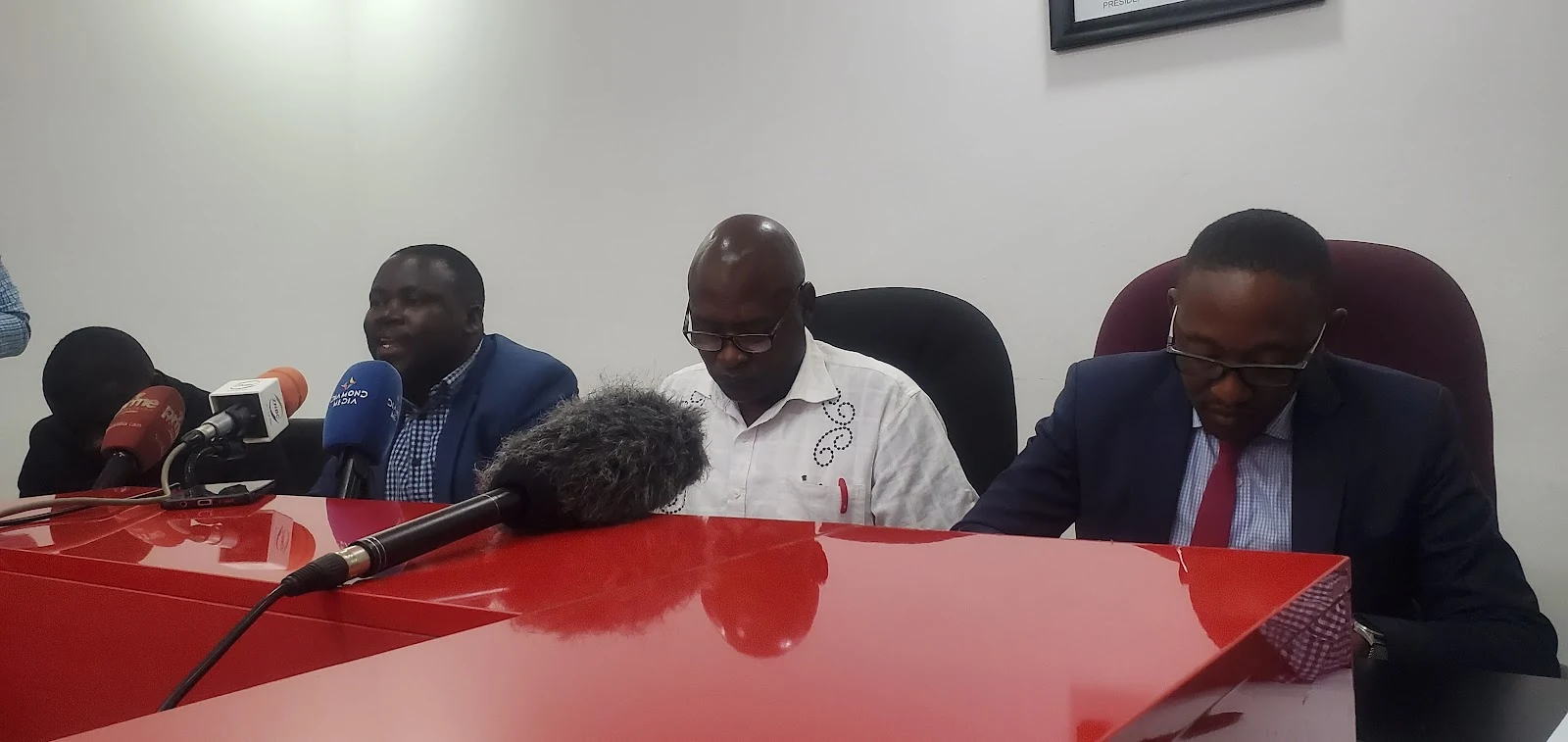Busting the Myths
.... UPND Dismisses False Claims on Constitutional Amendments
By Francis Maingaila ♥️
Lusaka, Zambia24 - (27-03-2025) - The ruling United Party for National Development (UPND), alongside key stakeholders, has dismissed misleading claims surrounding Zambia’s ongoing constitutional amendment process, calling for informed and fact-based discussions insists that the proposed changes are aimed at strengthening governance and electoral integrity, not advancing any hidden political agenda.
Media Urged to Counter Misinformation
Fr. Frank Bwalya, Director General of the UPND National Media Committee under the Presidential Support Programme, has urged the media to play a proactive role in addressing misinformation surrounding the constitutional amendments.
Speaking to journalists, Bwalya commended media professionals for their role in clarifying issues and called for greater vigilance in countering falsehoods, particularly those spread through radio and social media.
“We appreciate the work you are doing. Please continue challenging those spreading falsehoods, malicious propaganda, and hate speech,” Bwalya said.
He particularly addressed allegations that President Hakainde Hichilema intends to extend the presidential term from five to seven years and abolish the running mate clause.
Bwalya dismissed these claims as baseless, urging the media to scrutinize such statements and demand evidence from those making them.
“The people spreading these lies haven’t even read the proposed amendments. There is no such provision in the draft,” he stated, adding that these accusations are part of a larger attempt to discredit the President.
Constitutional Amendments: A Consultative Process
Bwalya emphasized that the UPND is committed to a transparent and consultative approach, unlike previous administrations that attempted to push constitutional changes without broad stakeholder engagement.
“These proposals are not final laws but areas where amendments are being considered. We need constructive debate, not fear-mongering,” he said.
One of the key proposals under discussion is the delimitation of constituencies, which Bwalya clarified is not a presidential directive but a process overseen by the Electoral Commission of Zambia (ECZ).
The ECZ, he noted, will determine constituency divisions based on population size and geographical factors.
“Delimitation is a constitutional and legal process, not a political maneuver. It ensures fair representation for all Zambians,” he explained.
Another notable proposal requires ministers to vacate office 90 days before elections to prevent the misuse of public resources during campaigns.
Bwalya described this as a progressive move aimed at ensuring a level playing field.
He urged opposition parties and some church leaders to focus on the substance of the proposed amendments rather than opposing reforms for political reasons.
“Let’s engage responsibly. The Zambian people will have their say in 2026, but for now, let’s debate these amendments with maturity,” he said.
GEARS Initiative Calls for Focus on Content, Not Debate Over Change
At a joint press briefing held at the UPND Secretariat, Lackson Lungu, Board Chairperson of the Governance, Elections, Advocacy, and Research Services (GEARS) Initiative, reiterated that constitutional reforms have been long overdue.
He reminded stakeholders that discussions on amending the Constitution began in 2016, with broad consensus on the need for changes to enhance governance and representation.
"We’ve spent years advocating for these amendments. The debate isn’t about whether we need change—it’s about ensuring the content of the amendments reflects national interests,” Lungu stated.
One of the key areas of reform, he noted, is increasing women and youth representation in Parliament. Zambia currently lags behind regional standards, with only 15% female representation, far below the 30% threshold recommended by the Southern African Development Community (SADC).
“Zambian women have been demanding greater representation for years. These amendments bring us closer to that goal,” he said.
He also highlighted provisions aimed at preventing election disruptions, such as ensuring that a candidate’s withdrawal does not automatically cancel an election—a reform GEARS has long advocated for in court.
“These provisions safeguard democracy by preventing political gamesmanship,” Lungu added.
Legal Experts Weigh In on Key Reforms
Legal expert McQueen Zaza also weighed in, supporting the amendments as necessary clarifications to address ambiguities in the 2016 reforms.
Zaza underscored the importance of constituency delimitation, which he described as essential for fair representation and equitable allocation of the Constituency Development Fund (CDF).
He emphasized that adjustments would be based on population distribution rather than political considerations.
He also backed provisions for guaranteed representation of youth, women, and persons with disabilities in Parliament, arguing that these groups remain underrepresented despite forming a significant part of the population.
Zaza further called for a legal framework that ensures election petitions, particularly presidential disputes, are resolved within 14 days, preventing prolonged political uncertainty.
Additionally, he raised concerns about the two-term limit for mayors, questioning why it applies to them but not to Members of Parliament.
UPND: A Commitment to Fair and Inclusive Reforms
UPND Director Mark Simuwe echoed these sentiments, advocating for reforms that promote fairness and inclusivity in Zambia’s electoral and political systems.
Simuwe suggested lowering the minimum experience requirement for the Secretary to the Cabinet from 10 to five years to allow for a wider pool of qualified candidates.
He also rejected proposals that would allow ministers and MPs to remain in office until elections, arguing that this could influence election outcomes.
Additionally, Simuwe criticized past attempts to use constitutional amendments for political gain, such as the controversial Bill 10, which sought to limit judicial independence and reinforce Zambia’s “Christian Nation” declaration.
“We remain committed to reforms that enhance inclusivity, accountability, and transparency. Zambians must engage critically with these proposals, rather than being swayed by misinformation,” he concluded.
A Call for Constructive Debate
As Zambia’s 13th National Assembly prepares to debate the amendments, stakeholders across different sectors have urged for an open and reasoned discussion.
Lungu, Zaza, and Simuwe all emphasized that the proposed amendments should be viewed as an opportunity to strengthen democracy rather than a political tool.
“We must move beyond myths and focus on facts. Let’s ensure the final amendments truly reflect the aspirations of the Zambian people,” Lungu said.
With consultations continuing until June, all parties are encouraged to participate meaningfully in shaping Zambia’s governance future.




Comments
Post a Comment